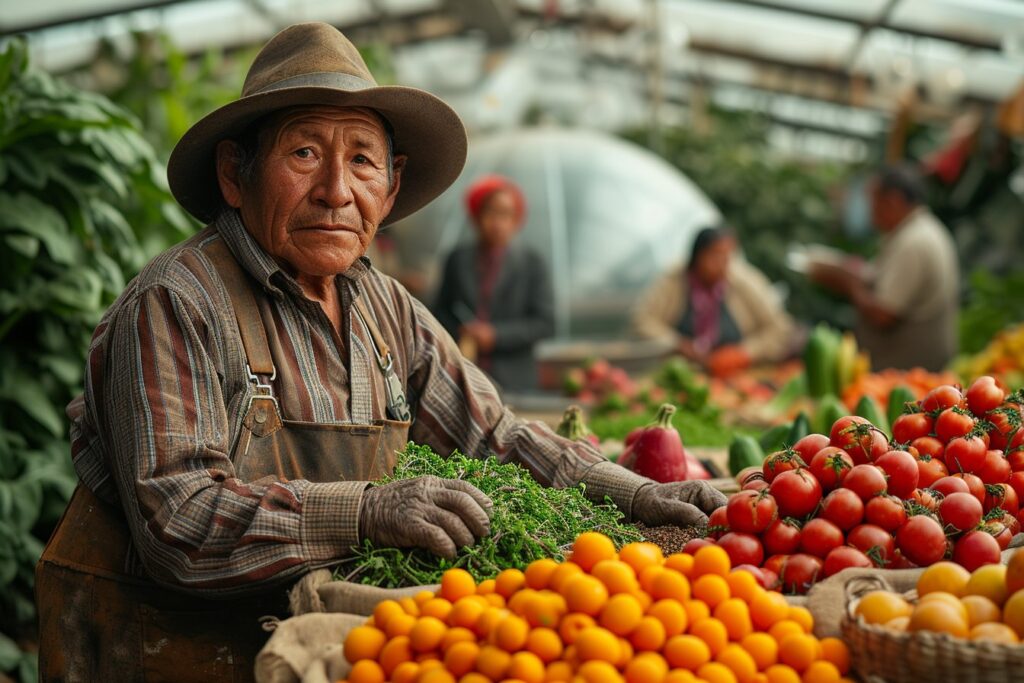Addressing Food Safety Concerns in the Era of International Trade and Climate Challenges
In a world increasingly impacted by climate change, ensuring food safety and healthy trade practices is paramount. Markus Lipp, Vittorio Fattori, and Cosimo Avesani argue that nations must work together to strengthen their food safety efforts at national, regional, and international levels. This will promote trade opportunities while ensuring that consumers have access to safe and nutritious foods. Although necessary investments in food safety can be costly, they are vital for maintaining product reputation and securing market access.
- The importance of national food control systems
- Maintaining sound scientific advice and evidence-based decision-making
- Promoting safe trade practices to reduce pests and diseases
- Aligning with international standards for economic growth
Building an Effective National Food Control System
As part of their responsibility towards citizens, governments must establish comprehensive food control systems at the national level. These systems should focus on risk assessment, management, and communication. Moreover, strong legislative frameworks and enforcement mechanisms constitute essential components of such systems. By doing so, governments ensure quality food products within their borders and adhere to international food safety standards to facilitate trade partnerships.
Seeking Sound Scientific Advice and Evidence-Based Decision-Making
Food safety policies and regulations must rely on solid scientific research and accurate data. With technological advancements and shifting trade dynamics, it is crucial for policymakers to continually update their knowledge and make evidence-based decisions. Investing in research and development (R&D) is essential for addressing current and emerging food safety issues.
Adapting to Climate Change and Food Security Challenges
Climate change poses significant challenges for food safety, including rising sea levels, ocean acidification, humidity fluctuations, droughts, and extreme weather events. These varying factors impact the prevalence of harmful bacteria and pests in food production. It is essential for governments and researchers to monitor climate change’s effects on food security and develop innovative solutions to alleviate its consequences.
Promoting Safe Trade Practices to Reduce Pests and Diseases
Safe trade practices contribute to secure food systems by minimizing the risk of pest and disease outbreaks. Stringent regulations on food imports and exports ensure that harmful organisms are not transported across borders and cause damage to local ecosystems or human health. Governments should collaborate with international organizations like FAO to develop and implement effective measures for mitigating these risks, ultimately contributing to global food security and climate resilience.
Aligning with International Standards for Market Access and Economic Growth
Developing countries must adhere to international food safety standards to improve market access and promote economic growth. By meeting requirements laid out by organizations such as the World Health Organization (WHO) and Codex Alimentarius, nations can participate more actively in the global marketplace, fostering greater investment opportunities and overall economic development. This alignment is crucial for bridging the gap between developed and developing countries, ensuring equal opportunities for all in the world of trade.
Support from International Organizations
Organizations like FAO play an essential role in supporting and advising countries on food safety improvements. They provide guidance and resources that help governments strengthen their national food control systems, invest in R&D, adopt safe trade practices, and align with international standards. This support empowers governments worldwide to ensure food safety and promote healthy trade relations in the face of climate change challenges.
The Need for Continued Investment and Cooperation
In conclusion, enhancing food safety and trade opportunities amidst climate change requires concerted effort by governments, researchers, and international organizations. By investing in national food control systems, seeking sound scientific advice, promoting safe trade practices, and aligning with international standards, nations can work together to ensure a secure, healthy, and prosperous future for all. As climate change continues to pose new risks and uncertainties, enhancing monitoring capacity and prioritizing political attention and funding for these challenges remain imperative for safeguarding global food security and facilitating healthy trade practices.




